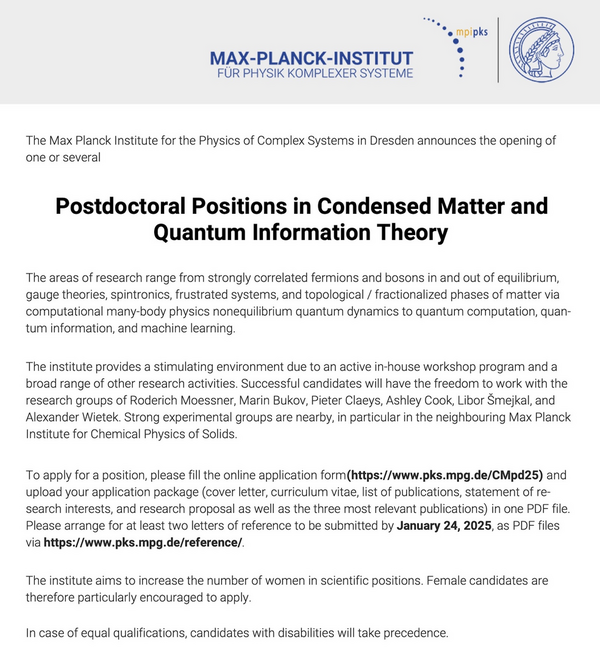
Work with us!
Welcome to our work with us page
Our institute is dedicated to providing opportunities for scientists at all career stages to pursue an exciting research programme in an open intellectural environment. Details for application procedures are listed in the following.
Ph.D. opportunities
We welcome applications for Ph.D. at any time. Interested applicants can either contact the director, one of the group leaders, which are listed in the members section.
A complete application entails:
(1) A single PDF file containing a cover letter, your academic Curriculum Vitae, and your latest transcripts from university. The transcripts should contain information regarding courses and university or entrance exams taken and performance in them. Please send this file to Ms. Anna Burger (Condensed Matter secretary).
(2) Two confidential letters of recommendation in support of the application, sent independently and directly to Ms. Burger by the referees.
Alternatively, you can apply to the International Max Planck Research School (IMPRS) for Many Particle Systems in Structured Environments, which has two application deadlines per year.
Call for postdocs
Opportunities for short and long visits to MPI-PKS
An outstanding feature of MPI-PKS is that - besides the usual support for Ph.D. and postdoctoral work - we are very flexible in providing opportunities for scientific visits of differing lengths.
For instance, this may be several-month programmes of collaborative research or sabbaticals for more senior scientists. The condensed matter division of MPI-PKS greatly welcomes such requests and proposals.
The MPIPKS hosts one or two Advanced Study Groups each year. Each group consists of several scientists working on a focused, cutting-edge, theme. The group will attract further shorter term visitors for seminars, lectures, discussions and other meetings. Potential organizers should in the first instance contact the Director (Secretary Email: sec-condmat[at]pks.mpg(dot)de) .
If you would like to visit us, but do not fall into any of the above categories, we try to accomodate any scientifically promising proposition. In that case, please contact either the Visitors Programme directly, or the scientist you expect to collaborate with, or both.
